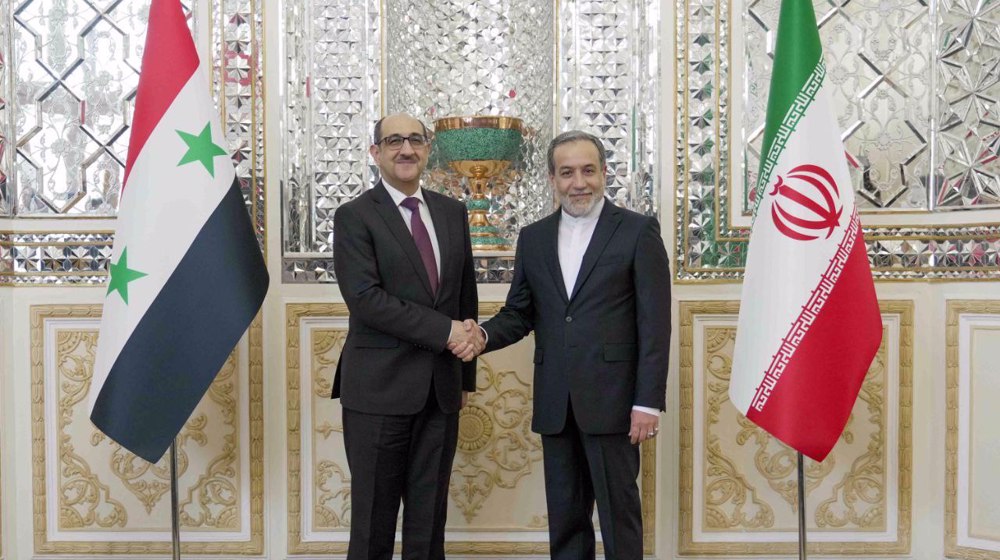Russia says no deal with US on Assad's fate
Russia has denied reports that it has reached an agreement with the US over the fate of Syrian President Bashar al-Assad as part of efforts to end the crisis in the Arab country.
Citing a UN Security Council diplomat, London-based Arabic language newspaper al-Hayat reported on Thursday that US Secretary of State John Kerry had informed several Arab countries of the alleged Moscow-Washington understanding that includes “Assad’s transfer to another country.” The report added, however, that "the timing and context of that in the political process remains unclear to everyone at the moment."
But Kremlin Spokesman Dmitry Peskov rejected the report as false during a press conference later in the day.
"Al-Hayat published information which does not correspond to reality," Peskov told journalists.
"Russia is advantageously different from other nations because it does not discuss the issue of the self-determination of third countries either through diplomatic or other channels," the Russian official added.

On March 25, Russian Deputy Foreign Minister Sergei Ryabkov also said that Russia and the US had reached an understanding on Moscow’s “basic thesis that deciding the issue of the future of Syria's president should not be on the agenda at this stage.”
The developments come amid a US-Russia brokered ceasefire in Syria that came into force on February 27 as part of efforts to find a diplomatic solution to the five-year-long foreign-sponsored militancy in the Arab country. The agreement stipulates the cessation of all military hostilities in Syria, except for the operations against the Daesh Takfiri terrorist group and the Syrian al-Qaeda, known as al-Nusra Front.
Meanwhile, the Syrian president has expressed readiness to hold snap presidential elections if Syrians so choose, although it is not included in the current political process.
"This depends on the Syrian people’s stance, on whether there is a popular will to hold early presidential elections. If there is such a will, this is not a problem for me. It is natural to respond to the will of the people and not to that of certain opposition forces. This issue concerns every Syrian citizen because every citizen votes for the president," he said on Thursday, adding that such a move needs "the Syrian public opinion and not the opinion of the government or the president."

Assad had earlier rejected certain efforts aimed at presenting a federal model for the future political system of the country, saying that Syria is too “small” for adopting such a model.
On Wednesday, the Syrian leader stressed that both the government and opposition should be included in a Syrian unity government, while rejecting the "transitional body with full executive powers" that the opposition pushes for in a move that entails Assad’s departure. He stipulated that "political transition" should materialize in the form of transition from one constitution to another, adding, "Thus, the transition period must be under the current constitution, and we will move on to the new constitution after the Syrian people vote for it.”
The UN-backed talks between Damascus and the opposition came to a halt earlier in March over Assad's future. The opposition argues that he must step down before a transitional government is established.

In recent months, Syrian army, backed by the Russian air power, has been making major gains against Takfiri groups, recapturing several strategic areas from their grip, particularly in the strategic northern province of Aleppo.
The foreign-sponsored conflict in Syria, which started in March 2011, has claimed the lives of some 470,000 people and left 1.9 million injured, according to the Syrian Center for Policy Research.
From Iraq to Gaza: The great disconnect between British people and rulers
Syria condemns Israel's killing of 36 in 'horrific' strike on Palmyra
Iran rejects UN human rights resolution as politically-motivated, unjustified
US Senate rejects bids to halt military sales to Israel
US veto of Gaza resolution 'license' for more Israeli crimes: Tehran
Iran urges IAEA Governors Board to oppose E3’s anti-Iran resolution
Nov. 20: ‘Axis of Resistance’ operations against Israeli occupation
VIDEO | Iran celebrates National Hero Day, honoring Martyr Qassem Soleimani















 This makes it easy to access the Press TV website
This makes it easy to access the Press TV website